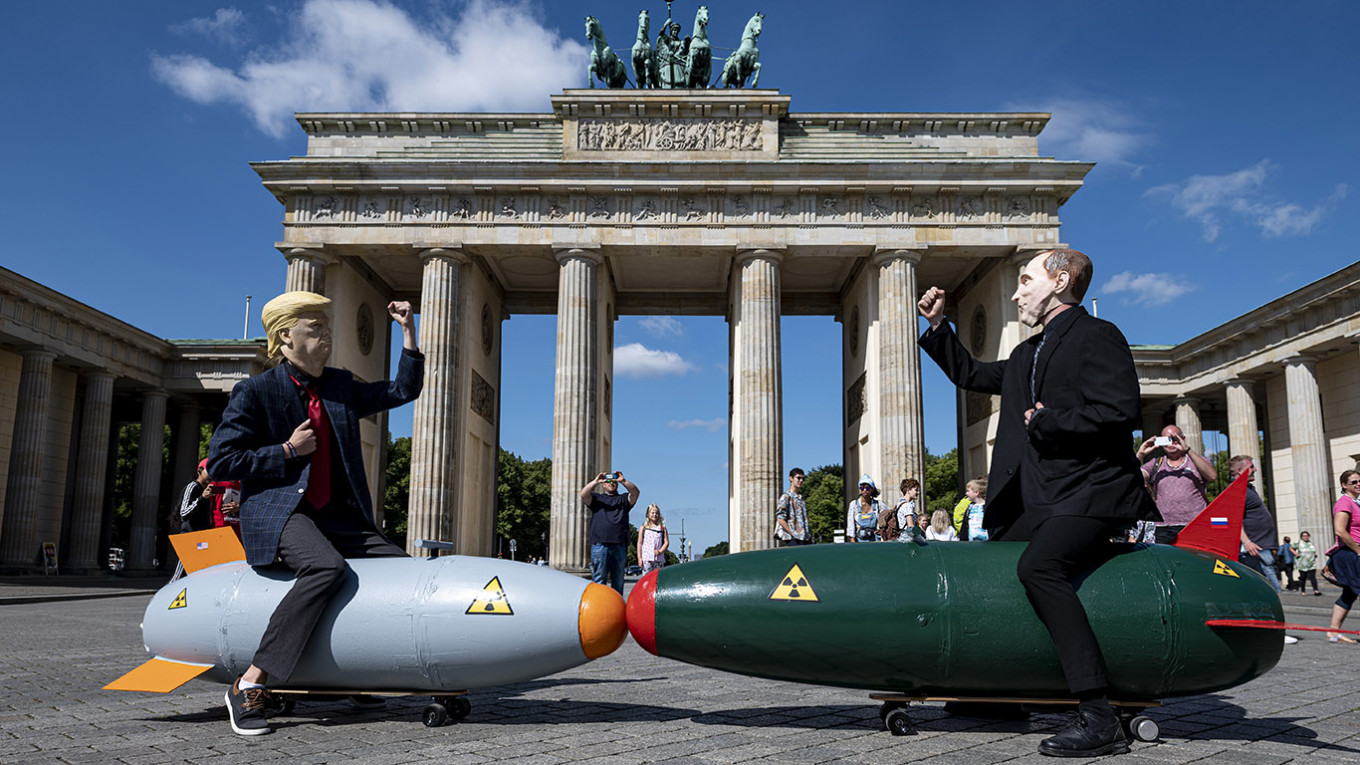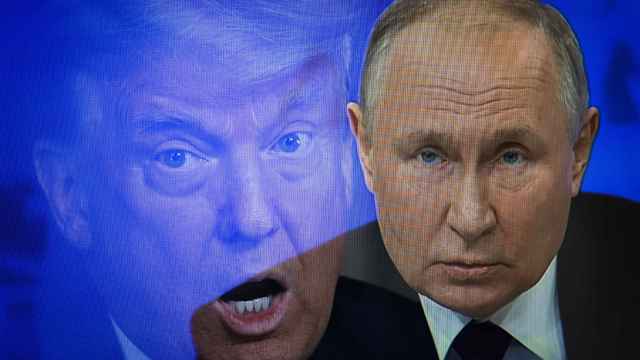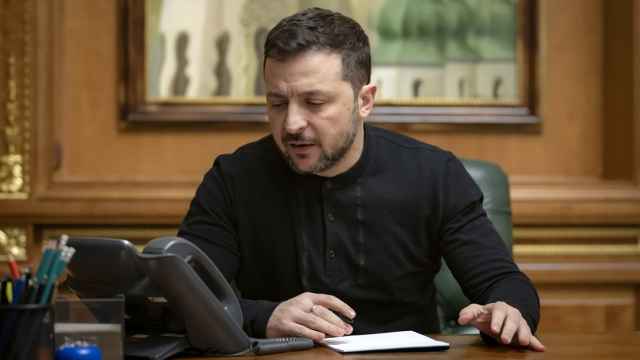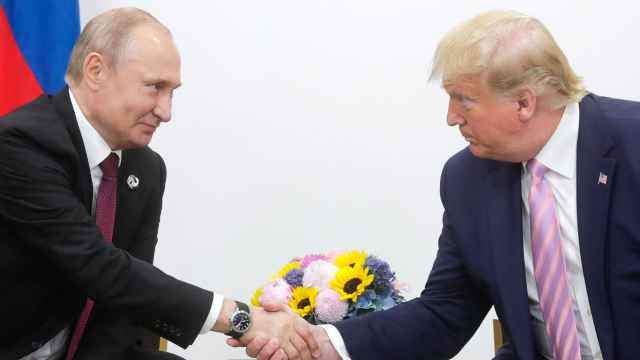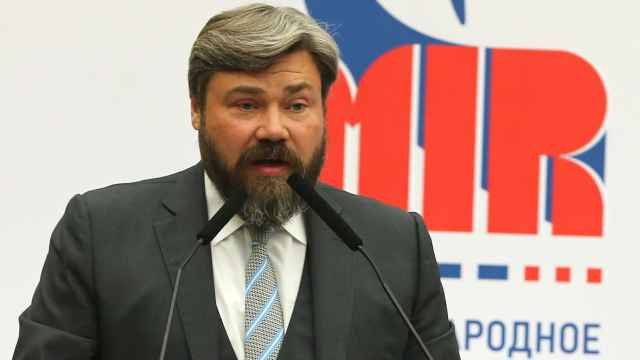U.S. President Donald Trump and Russia’s Vladimir Putin announced that they had agreed to hold peace talks on the war in Ukraine following a surprise phone call on Wednesday, stunning both Kyiv and Europe and prompting jubilation in Moscow.
Yet experts and political figures largely appeared skeptical about the chances that talks between the two leaders could lead to a lasting peace in Ukraine.
“Trump wants a ceasefire and some kind of arrangement that would sideline the Ukraine issue for a while. But his vision still differs radically from Putin’s,” said Tatiana Stanovaya, a senior fellow at the Carnegie Russia Eurasia Center in Berlin.
“From the Kremlin’s perspective, there is nothing the West can do that would reverse Russia’s territorial gains and prevent Ukraine’s collapse in the long run,” Stanovaya noted.
According to Stanovaya, Putin would see a real solution as a Ukraine that is friendly to Russia and stripped of military capability, with a rewritten constitution and guarantees of its non-membership in NATO.
“In the meantime, Putin will continue to flatter and appease Trump, offering concessions that Trump will present as a huge success and a wonderful deal,” she said.
Along with the Ukraine war, the Kremlin said Thursday that Russia also wanted to discuss European security in any negotiations with the U.S. — another apparent reference to Putin's concerns about NATO expansion.
Putin used NATO’s expansion as a pretext to launch the full-scale invasion of Ukraine. Before the invasion, Moscow had demanded that the military alliance roll back to its 1997 borders — which would exclude the Baltic states and Poland.
U.S. Secretary of Defense Pete Hegseth denied Thursday that Trump's efforts to seek an end to the Ukraine war were a "betrayal" of Ukraine.
Yet the renewed contact between Moscow and Washington sparked concerns in Kyiv — and also in Europe — which largely sees the talks between Trump and Putin as a signal that Ukraine could be left out of negotiations on its own fate nearly three years since being invaded by Russia.
German Chancellor Olaf Scholz said Thursday a deal to end the Ukraine war should not be imposed on Kyiv, while Defense Minister Boris Pistorius said it was "regrettable" that Washington had made "concessions" to Russia before peace talks on Ukraine had even started.
Kyiv School of Economics President Tymofiy Mylovanov said that Ukraine had been unwilling to accept the possibility of U.S. military and political backing dwindling.
"We have always lived in this reality. But we didn't want to admit it," the respected political analyst wrote on social media.
"[Former U.S. President Joe] Biden supported the continuation of the war but did not provide sufficient assistance," the respected political commentator wrote on social media.
"Trump supports the end of the war but will not provide sufficient assistance either," Mylovanov added.
Pro-Kremlin political analyst Sergei Markov said that the conversation between Putin and Trump signifies “the collapse of the policy of demonizing Putin” and highlights “a growing division within the West.”
Back in the U.S., the planned negotiations have sparked criticism from various American figures.
Michael McFaul, Washington’s ambassador to Russia from 2012-2014, said he was “very nervous about all the concessions being given to Putin even before any formal negotiations” on the possible peace talks.
John Bolton, who had been Trump’s national security advisor during his first term in office, said the U.S. president “has effectively surrendered to Putin on Ukraine” by selling out “the Ukrainians by conceding the loss of their territory and NATO security guarantees or membership.
“I warned many times that Trump will favor Russia in negotiations between Zelensky and Putin… The harm to U.S. security interests will extend well beyond Central Europe, as our adversaries in the Middle East and the Indo-Pacific can plainly see,” Bolton said.
In his turn, Ukrainian President Volodymyr Zelensky said Wednesday he had had a "meaningful conversation" with Trump, who "briefed us on his conversation with Putin" and added that he was "grateful to President Trump for his interest in what we can accomplish together."
Zelensky stressed to Trump that the war must end "in a just peace," Andriy Yermak, head of Ukraine's presidential office, said in a television interview. Yermak added that Ukraine's "independence, territorial integrity and sovereignty" cannot be subject to any compromise and that the two sides were working on organizing a personal meeting between Zelensky and Trump.
Some experts argued that a deal with the U.S. excluding Europe and Ukraine is something Putin has likely sought for a long time.
“Putin would likely agree only to meaningless guarantees — ones that could not be effectively invoked if Russia were to launch another attack,” Sergey Radchenko, a Russia expert and professor at the Johns Hopkins School of Advanced International Studies, wrote in an op-ed for The Moscow Times.
According to Radchenko, Putin would likely want to see Russia and its potential partners “in a position to veto any Ukrainian request for external assistance.”
“Would Trump agree to such a framework? If he did, it would amount to a betrayal of Ukraine, and would leave the country defenseless against future aggression,” he added.
AFP contributed reporting.
A Message from The Moscow Times:
Dear readers,
We are facing unprecedented challenges. Russia's Prosecutor General's Office has designated The Moscow Times as an "undesirable" organization, criminalizing our work and putting our staff at risk of prosecution. This follows our earlier unjust labeling as a "foreign agent."
These actions are direct attempts to silence independent journalism in Russia. The authorities claim our work "discredits the decisions of the Russian leadership." We see things differently: we strive to provide accurate, unbiased reporting on Russia.
We, the journalists of The Moscow Times, refuse to be silenced. But to continue our work, we need your help.
Your support, no matter how small, makes a world of difference. If you can, please support us monthly starting from just $2. It's quick to set up, and every contribution makes a significant impact.
By supporting The Moscow Times, you're defending open, independent journalism in the face of repression. Thank you for standing with us.
Remind me later.



